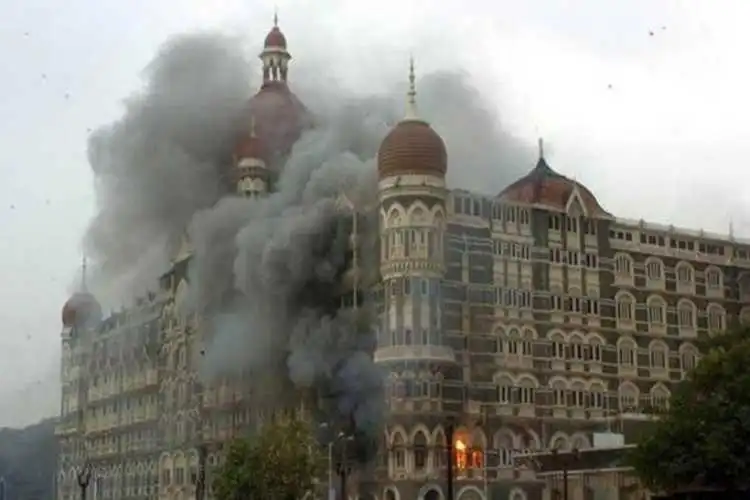
Aasha Khosa/New Delhi
It was the live coverage of the multiple attacks launched by 10 terrorists of the Pakistan-based Lashkar-e Toiba on Mumbai on November 26, 2008, that enraged the Indian public and set the mood against Pakistan; and also galvanized the Indian government to end its casual approach in tackling the threat of terrorism from Pakistan.
News Analysis
As the world watched in horror the live coverage of terrorists from behind the window panes and, a commando being airdropped on top of the Jewish Chabad house where terrorists had killed the Rabbi and his wife, I remember a foreign journalist asking me at IWPC where we were watching the live coverage, “Have they got Israeli commandoes?”
She couldn’t imagine that she was seeing an Indian Army commando descend from a helicopter through a rope on the rooftop of the terrorists’ hideout for that day. For her and most of the world, India was about dance, art, and festivities; a soft state.
As the Army, NSG, and the Police took charge of fighting the terrorists at seven spots - a hospital, railway station, a restaurant, a Jewish center, and two luxury hotels, including the Taj Mahal Palace - the world saw the teeth of the Indian State through the television coverage of the events unfolding in Mumbai.
The world also saw a united India where common people stoically stood as one, offered food and tea to policemen fighting the holed-in terrorists, lit candles for peace and helped each other. This broke the western sterotype of an India riven with communal and caste divisions.
As the 26/11 came seven years after 9/11, it further firmed up the global mood of taking on the terrorism-sponsoring States head-on. This was the beginning of the West cold-shouldering Pakistan for the first time after its inception in 1947.
Very soon, Pakistan was to be placed on the list of countries that helped funding of acts of terrorism of the Financial Action Task Force (FATF). Pakistan's weak legal and financial systems made it easier for terrorists to garner and route funds for their diabolic acts This time, it took four years for Pakistan to get out of the list but in the meanwhile its stocks and credibility had already plummed to a point of no return
In the Indian security scenario, the government of Manmohan Singh had to halt its “lighting candle on the borders and issuing token condemnation” of Pakistan’s policy of pushing terrorists to strike in Kashmir and other parts of India.
At the late-night meeting held with leaders of political parties, the government announced the setting up of the National Investigation Authority (NIA) and paying attention to the security of the Indian coasts that were used for filtration by the terrorists to enter Mumbai. The chalta hai approach that saw the Indian state treat cross-border terrorism as a mere crime for years had lost relevance.
Even after this Pakistan didn't jettison its policy of using terrorists to wage a proxy war against India yet things had changed. Pakistan is today home to the third largest number of terrorists and terror groups proscribed by the United Nations Security Council. The list includes Syed Hafiz, the mastermind of Mumbai terror attacks who is supposedly in jail for 31 years for terror funding.
Pakistan didn’t desist from staging grand terrorist strikes – all attributed to non-state actors (Read terrorists raised by the Deep State) like in Uri, Pathankot, and Pulwama.
It has taken a surgical strike deep in the Pakistani territory of Balakote by the Narendra Modi government to make the Pakistan army sit up and rewrite its rule book for war strategy. In this document circulated among its officers, the Army has admitted that the Balakote strike has changed the paradigm of war in south Asia. In simple terms, it means that the nuclear threat is not working against India.
After this, the outgoing army chief Qamar Javed Bajwa declared his intention to walk on the peace path with India and a ceasefire on the LOC. The latter is still holding.
ALSO READ: Pakistan throws its ex-PMs into jail, exile and to assassins' bullets
After treading on the path of raising terrorists, Islamabad is now facing hard times with domestic terrorism on the rise, political divisions that show the all-powerful army in not-so-good terms, rising tensions with neighbours like Iran and Afghanistan. Pakistan, obviously didn't take Mahatama Gandhi's quote, "Means are as important as the end" seriously.
